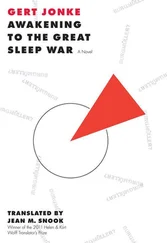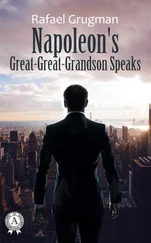FOR BRIAN GLENNON
of the Hunterdon Central Regional High School
English Department
His lessons inspired this book.
Also, he made high school way better.
My dad, who did all the heavy lifting when it came to child rearing and was far better suited to the job than my mother, gave me some good wisdom after my first summer away in East Hampton. I was twelve, and my mother had her personal aesthetician and stylist, Jonathan, put some blond highlights in my mousy brown hair when he came to the house for her weekly appointment. When I flew back home to Chicago before school started, I brought my blond highlights with me. Dad stared at me like I was an alien when he opened the triple-locked apartment door to let me in. When I was unpacking in my tiny pink bedroom (this was before I painted it brown and covered it in vintage posters of Jeff Buckley and the Afghan Whigs and Liz Phair), he came into the room and gave me a little speech.
“That place at the beach with all ww mother’s fancy friends—it’s another world. I’m not saying it’s a bad one. It’s just different. But whether you’re in this world or that one, you still have to live with yourself. Remember that you can’t be one person one place and a totally different person in another place. Right is right and wrong is wrong, no matter where you are.”
I wonder what he would’ve said if he’d met Jacinta Trimalchio.
What I remember the most about Jacinta is her eyes—those enormous green orbs flashing joy and pain and longing from that impossibly delicate little face. They were always so full of hope—irrational, astonishing, sometimes even irritating hope. Hope that it would all work out, somehow, even when it was plain to see her dream messily slipping away like wet sand through a child’s fingers. But to understand her, and what she hoped for, and what she got, and how she almost, almost managed to hang on to it, you’ve got to understand where it all happened.
East Hampton, that storied playground of the extremely rich, and those who work for them, is a town of Traditions—whether those traditions are new or old, once something is declared “traditional,” no variation can be tolerated. My mother loves traditions. And she’s made a mint convincing women that she’s the arbiter of all things domestic. My mother, the Queen of All Cupcakes, spends most of her waking hours figuring out how to conquer television, radio, publishing, and the Internet with her sugary signature confections. She convinced millions of America’s mothers that they needed to make their own organic sprinkles from scratch, or risk a lifetime of scorn from better, more evolved female specimens. She started out as a cocktail waitress in Chicago, worked her way up to the kitchen, started her own catering business, acquired some celebrity clients, and bang! —she was off to a life of glitz and glamour and fondant in New York City, leaving my father and me behind in the Second City.
My dad didn’t take it so hard because, as he told me the day Mom left, “She’s not the person I married, anyway. I don’t even know who she is now.” Since he’s a good guy, he added, “She does love you, you know. And you love her, too.” But she never stops buzzing around long enough for me to get a good look at who she really is, so I can’t decide if I love her or just feel like I ought to. She imprisons me in East Hampton each summer, because the court says she can and because I don’t have any real reason to refuse, except that I really, really don’t like her.
Anyway, traditions.
In East Hampton, houses should always be clad in cedar shingles—possibly the most boring building material available to modern man. Cars should have dark tinted windows to cloak the celebrities or (more likely) wannabes who sit inside. Bathing suits should be completely covered—preferably, by couture—on village streets. Children should be seen and not heard. And you never ever talk about money.
When I came back from the Hamptons after the summer I met Jacinta Trimalchio, Chicago felt like the biggest relief in the world. Watching the grid of lights unfurl before me as the plane drew down lower to O’Hare, I felt my whole body relax. My shoulders dropped. And then I started to cry—real, gulping sobs, the kind my mother would never have approved of, the kind I don’t think Jacinta Trimalchio ever let herself shed, even when she should have, especially when she should have. Even though we were pretty close to landing, a flight attendant came by and gave me a bunch of tissues.
“Here you go,” she said, leaning down to my aisle seat. “It’s going to be all right. It’s almost over.” She patted me on the shoulder and walked back to the galley. She was right. But she was wrong, too. I don’t know if it’s ever really going to be over. Not for me, anyway.
That my summer had been overrun by fakes and liars was no surprise. That’s how fancy people stay fancy—not usually through outright lies, but through selective omission, partial revelation, and what they might, on the SATs maybe, call “delicate subterfuge.” The Hamptons is full of fancy people who spend their days pretending, and their nights dreaming, that their pretense is real. But the biggest, fakest liar of them all, Jacinta Trimalchio, was also the best person among them.
She stands alone among everyone in my life as the only person who truly believed in the power of love to overcome everything— everything . That she was wrong in the end doesn’t diminish in any way my respect for her. You could call her a lot of things—delusional, obsessed, a fraud—but you couldn’t say Jacinta was without passion. She did everything bigger than everybody else, including falling in love—or whatever it was she fell into with Delilah Fairweather. Maybe it was an obsession. Or maybe it was just an innocent hope, pure and true, that she could regain the life that had been stolen from her.
You might argue that she did herself in, that she deserved everything that came her way, ultimately, but I’d be willing to fight you on that point—physically, if necessary. I should’ve fought harder for Jacinta when I had the chance. But I didn’t, and that’s why I came home from Chicago like a raw-nosed girl crawls sickly and gratefully to her bed at 7 a.m. after a night-long coke and booze bender, wiping snot off her face and bile off a pair of lips she can’t feel. And if you think I’m too young to know what that looks like, you’ve probably never been seventeen years old and spent a summer in the Estate Section in the Hamptons.
That summer began differently from all other summers in East Hampton. Usually I take a coach flight from Chicago sometime in mid-June (Dad pays for it, because he doesn’t want me to get a big head from flying around on Mom’s first-class dime), and Mom sends a giant, black SUV with tinted windows to pick me up at JFK Airport. (Because, you know, a five-foot-tall girl with two suitcases really requires a ginormous sports utility vehicle and a uniformed, obsequious driver to get out to the East End of Long Island.) Then he drives me the two hours out to the fancy house my mom bought when I was eleven, less than a year after she divorced my dad and moved to New York to open her own cupcake bakery and begin shooting her TV show, Bake Like Anne Rye! (You have to add the exclamation point at the end. It’s part of the trademarked name. They can seriously, like, sue you or something if you don’t.)
I got to the usual spot at JFK, and there was a driver holding up a big embarrassing placard with NAOMI RYE written on it. For as much as my mother loves being the center of attention, I hate it with a huge passion. Even my dad, who is about the least show-offy guy you’ll ever meet, is better in front of a crowd than I am—he teaches gym and coaches basketball at my high school, so he’s always in front of lots of people. He’s really good at it, too, and yet his yearly salary is equivalent to about two weeks’ pay for my mom. I’m not even kidding—I did the numbers. I’m not supposed to know what they make, but Mom always has lawyers or assistants around talking facts and figures, and last year they published all the Chicago public high school basketball coaches’ salaries in the
Читать дальше












